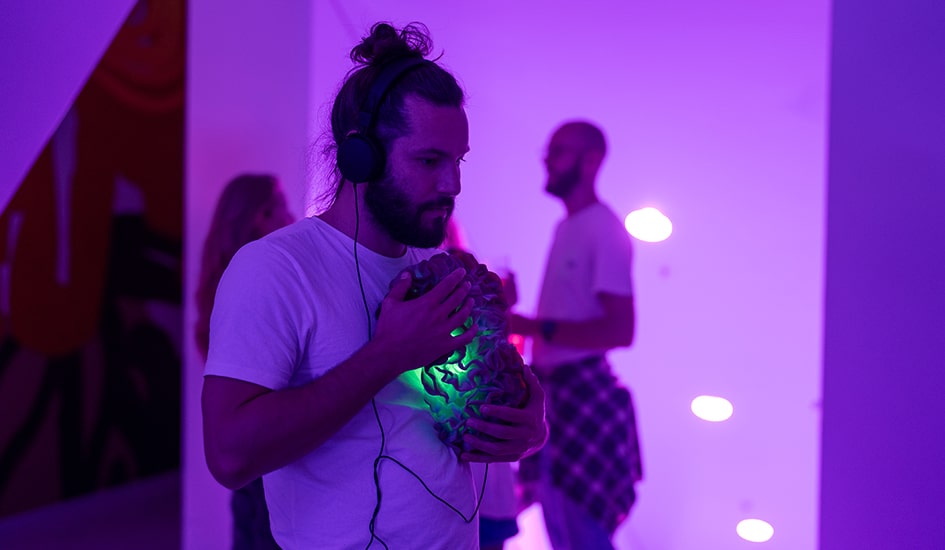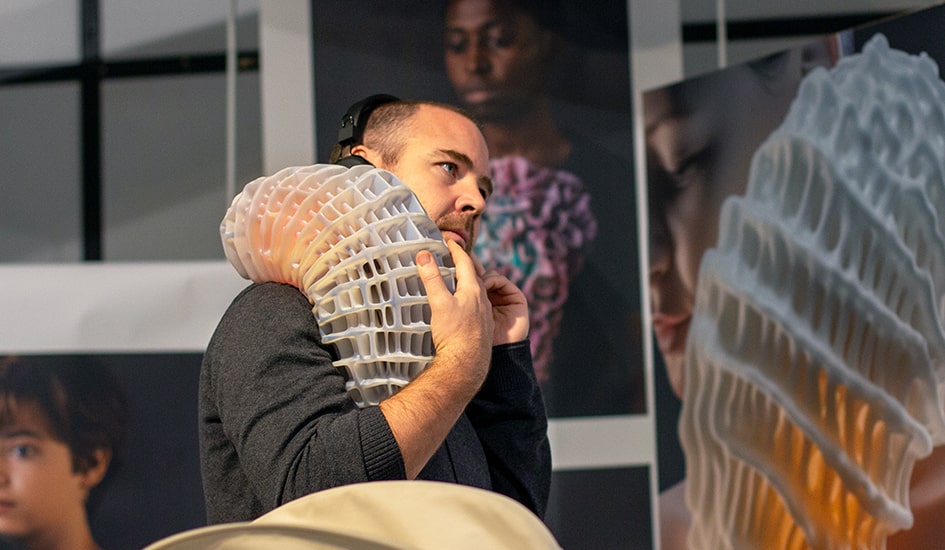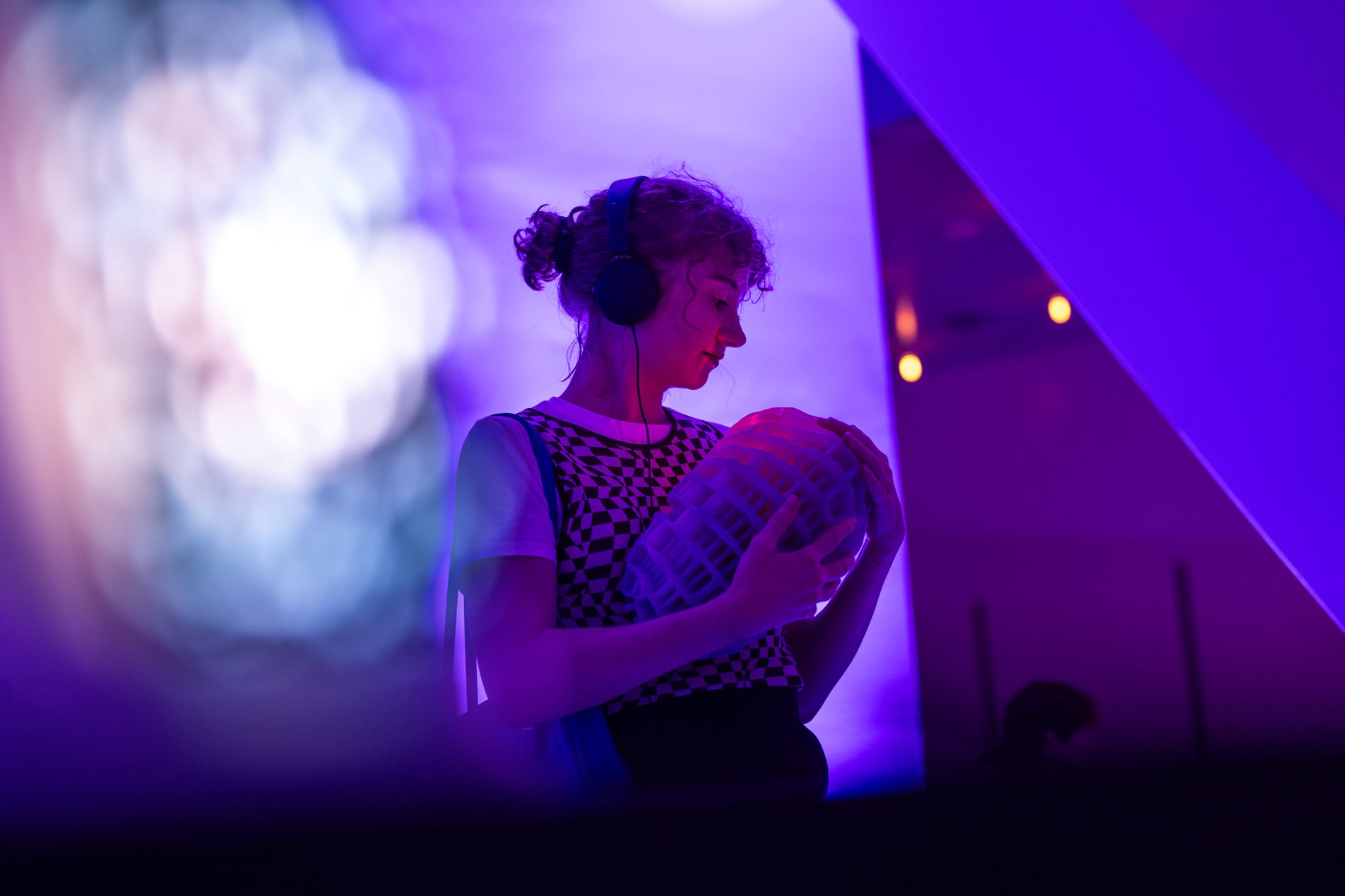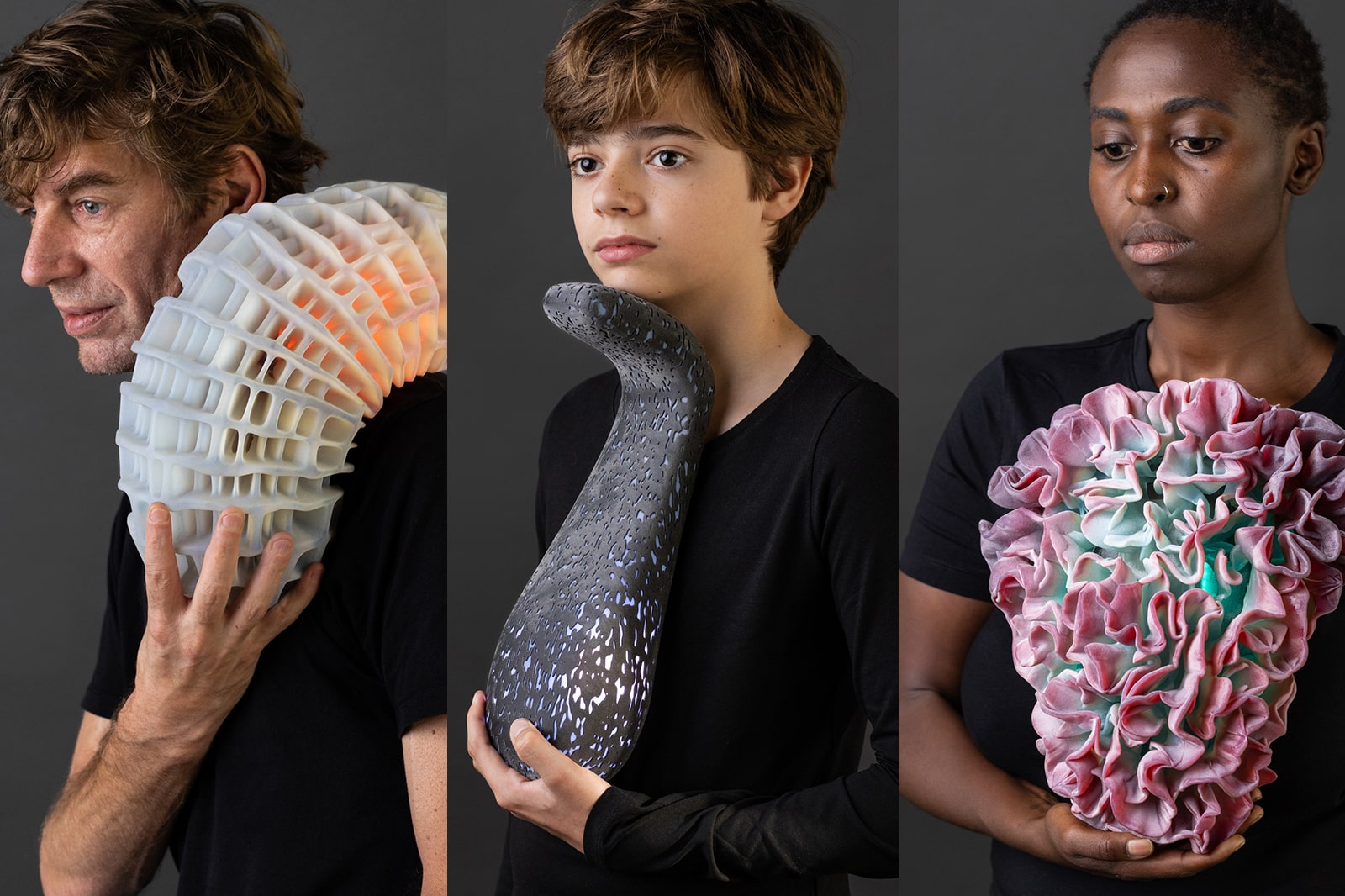
Imagine living closely with an implant in your body for a year. An implant that helps you heal and grow new body parts. A close relationship develops in which you care for each other, until, as previously agreed, the implant sacrifices itself. Not long after, you receive an emotional farewell message from the implant, reflecting on your connection – and on the bond between humans and technology.
UMC Utrecht
INKplant
Stratasys
Utrecht University
–
Medical ethicists
Manon van Daal
Anne-Floor de Kanter
–
Technologists
Joost Plattel
Kees Plattel
–
Sound Designer
Daan Kandelaars
Betweter Festival 2023
Dutch Design Week 2023
UMC Research Day
Foundation We Are
Technical University of Madrid
Innovation for Health 2024
Dutch Health Week
The Pando Network
Studium Generale TU Delft



“By bringing together an interdisciplinary team of experts from fields such as ethics, design, engineering, and research, INKplant is fostering a conversation with patients and the public on the future possibilities of regenerative implants.”
![]()
INKplant – funding partner
“By bringing together an interdisciplinary team of experts from fields such as ethics, design, engineering, and research, INKplant is fostering a conversation with patients and the public on the future possibilities of regenerative implants.”
![]()
INKplant – funding partner


Intimate Implant is a speculative experience focused on an underexplored theme in science: the emotional relationship between humans and technology. From the perspective of three regenerative implants – a new type of implant that breaks down and is replaced by new native body tissue – scenarios are explored in which humans and technology coexist intimately. What is it like for technology to be so devoted to humans, how do we live harmoniously with technology, and what happens if technology fails to fulfil its promise?
Experiencing the Intimate Implant, several people with technology implanted in their bodies said to be touched. For the first time, they felt a strong connection and an emotional bond with their inner device. Some even cried, expressing that they finally felt understood and were given words to describe living with such technology within them. They shared that this experience would have been very helpful, both in preparation before getting an implant and during their post-implementation aftercare.
One visitor (46) shared: “I could relate to Intimate Implant because a week later, I would have a technological device implanted in my body. This artwork makes the technical aspect personal and tangible, which is crucial as the experience with an implant itself is highly personal. Connecting with the device and the emotional relationship that develops resonated with me. My own implant vibrates occasionally, and through Intimate Implant, I might have come to see it as a form of communication, providing me with reassurance.”
The increasingly intimate relationship between humans and technology in general, and the upcoming breakthrough in regenerative implants in particular, raises the question what it is like to live with a technology intimately embedded in our bodies. Research shows that living with a medical implant can lead to feelings of disembodiment, insecurity, and helplessness. Regenerative implants could potentially amplify these feelings. It shows the urgency to investigate ways to improve the emotional and conscious relationship between humans and their new body part.
Intimate Implant has been developed in close collaboration with Manon van Daal and Anne-Floor de Kanter. They are researchers in Bioethics at the (sub)department of Bioethics and Health Humanities (UMC Utrecht).
Photography Betweter Festival: Ivar Pel
Photography Dutch Design Week: Nicole Miedema
Photography models: Jasper Zijlstra
Intimate Implant is a speculative experience focused on an underexplored theme in science: the emotional relationship between humans and technology. From the perspective of three regenerative implants – a new type of implant that breaks down and is replaced by new native body tissue – scenarios are explored in which humans and technology coexist intimately. What is it like for technology to be so devoted to humans, how do we live harmoniously with technology, and what happens if technology fails to fulfil its promise?
Experiencing the Intimate Implant, several people with technology implanted in their bodies said to be touched. For the first time, they felt a strong connection and an emotional bond with their inner device. Some even cried, expressing that they finally felt understood and were given words to describe living with such technology within them. They shared that this experience would have been very helpful, both in preparation before getting an implant and during their post-implementation aftercare.
One visitor (46) shared: “I could relate to Intimate Implant because a week later, I would have a technological device implanted in my body. This artwork makes the technical aspect personal and tangible, which is crucial as the experience with an implant itself is highly personal. Connecting with the device and the emotional relationship that develops resonated with me. My own implant vibrates occasionally, and through Intimate Implant, I might have come to see it as a form of communication, providing me with reassurance.”
The increasingly intimate relationship between humans and technology in general, and the upcoming breakthrough in regenerative implants in particular, raises the question what it is like to live with a technology intimately embedded in our bodies. Research shows that living with a medical implant can lead to feelings of disembodiment, insecurity, and helplessness. Regenerative implants could potentially amplify these feelings. It shows the urgency to investigate ways to improve the emotional and conscious relationship between humans and their new body part.
Intimate Implant has been developed in close collaboration with Manon van Daal and Anne-Floor de Kanter. They are researchers in Bioethics at the (sub)department of Bioethics and Health Humanities (UMC Utrecht).
Photography Betweter Festival: Ivar Pel
Photography Dutch Design Week: Nicole Miedema
Photography models: Jasper Zijlstra
© 2024 Symbiose All Rights Reserved.
© 2024 Symbiose All Rights Reserved.